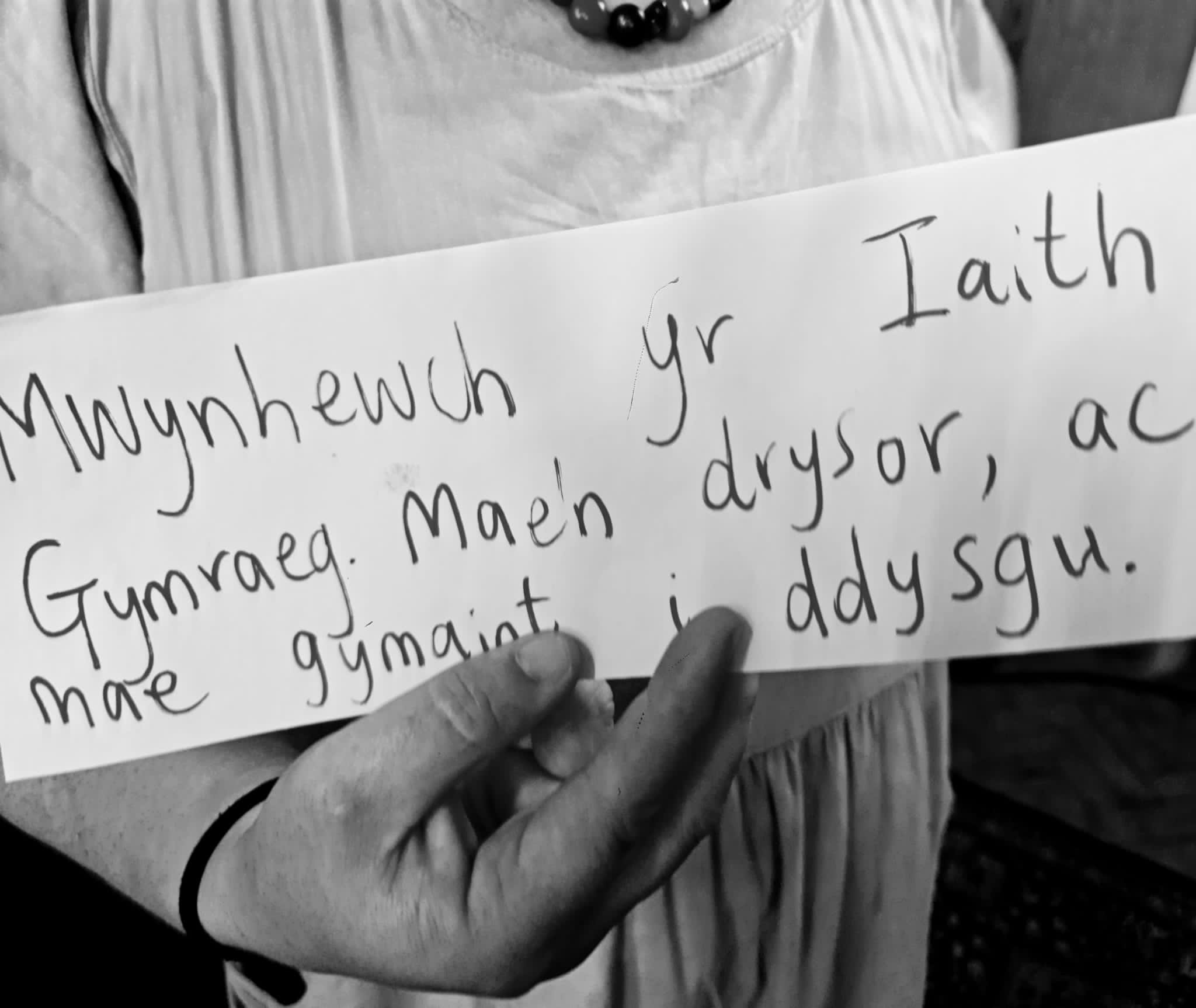The words that hurt me every time.
You do not need to say sorry, to me or anyone else. That is not your fault.
“Are you first or second language Welsh?”
Hurts every time too.
I’m bilingual.
There are spaces I could never have survived or situations I could never have navigated being exclusively married to one. Welsh language services from the cradle to the grave need to be normalised & embedded, not a roulette, not an “if you’re lucky”. The Welsh language has both abandoned me & saved me. I am trauma bonded to it & enlightened by it. My bilingualism isn’t lazy or uneducated. Slang isn’t scummy.
I was in a training session recently, a room full of Welsh speaking artists. I couldn’t think of the Welsh word for something. So I asked. I always ask. And one of the artists said “Oh, are you the Welsh learner?” and I said “We are all learning every day”.
There are Welsh learners in my work who braved dropping translations for social media recently. They won’t be doing that again. It is so embarrassing, & I had to explain that it wasn’t them. It happens to us all. Welcome to the club. Hurt people hurt people, especially when there’s mutations involved.
On the 31st March I attended Swansea University – Bilingualism & Dementia Resilience Conference.
One of the most fascinating things to come out of this was the research showing the relationship between mother tongue and trauma. It was a light bulb realisation, as when I was in trenches of trauma my brain could only navigate my life & art in my mother tongue.
But even that is complicated. My mother tongue is not from my mother. And my Welsh speaking family were so traumatised by transgenerational Welsh Not abuses that they spoke Welsh in secret, or hid it in Hearth language, or eccentric quirks.
Do you know how many Welsh speakers & learners I know who have been crippled by corrections?
Do you have an idea of Welsh language educated adults that could never reply to an email exclusively in Welsh without panic or a brain pickled by Google translate?
Do you know how many quarrels/delays a poster can cause? When people say “sign-off”, is there an actual document that requires actual “sign-off”? Why & how can so many people involve themselves in poster politics? Why am I making posters? Why am I making posters that I’m not trusted to translate?
Who has the time for all this?
I wish I had the time to translate this work, but Welsh in text is a battle, that I can win, if I had the privilege of time. I wouldn’t waste a second fighting you over a poster, I’d be too busy breaking gender rules to turn Welsh into a beatbox.
Something went wrong, right?
I am forever grateful to professionals & peers that persisted with emails in Welsh. And I persisted, dug deep with dyslexia & one email or text at a time in Welsh, my Welsh, typing as I would talk it, warts and all, but the vulnerability & Welsh self is worth taking up that space. I’m not interested in your corrections. I’m not trying to dilute anything, but have we considered neurodiversity in all this? If we sat with dyslexic texts long enough we would find a very welcome strand to all this identity discourse. We’d be a far more creative & inclusive nation. And why can’t we question the rules & the gendering? Like Sara Louise Wheeler’s poem, “why are sandwiches feminine?”.
I want to reconsider how we are sharing information.
I want the Welsh language to be embedded within English language texts, to be the dominant choice for place names, ventures, projects, sites. No more separate versions. It stays out of reach that way. And we’ve lost enough already. Give the words context. Continued key words that connect us. I’d love for us to be united in our understanding of Hop-tŷ, born from my research in the Abertridwr Valley & my dedication to hip hop, heritage & hope… this ability to rock/pop/hop-up anywhere, because you are the culture & the space, the key words are concepts, that cut through all this.
Rufus Mufasa
